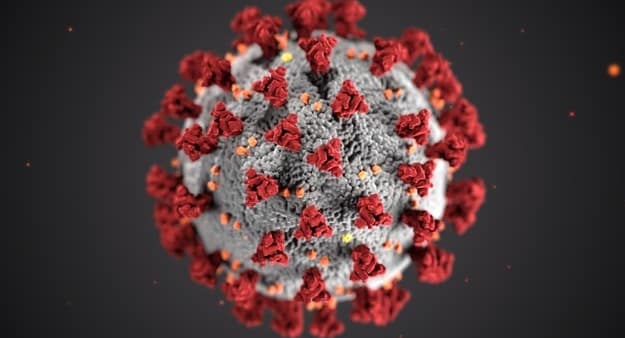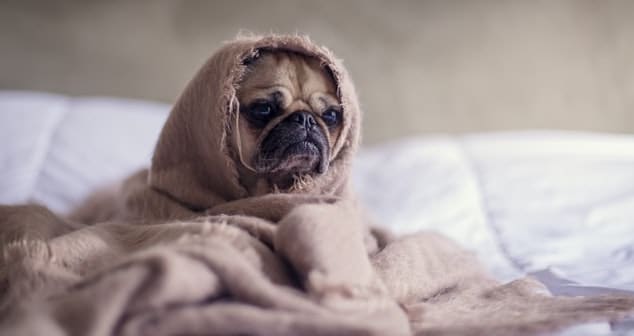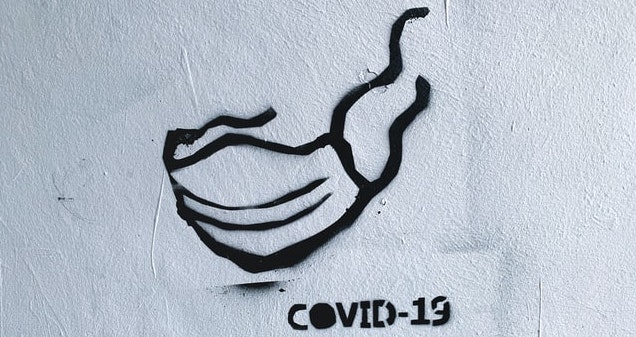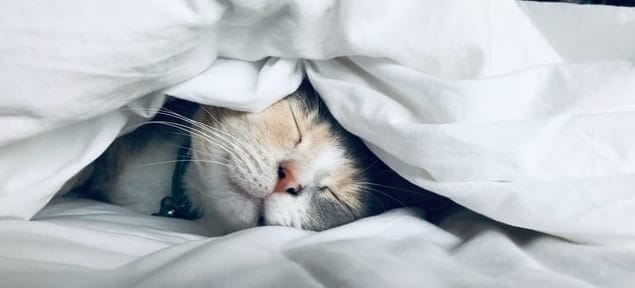According to a COVID researcher I follow, approximately 80% of all COVID infections will have lingering/residual symptoms.
Most individuals who experience residual COVID symptoms end up making full recovery within 6-12 months – and many others experience partial recovery.

Although “fatigue” is the most common symptom after COVID (reported in ~58%) – approximately ~11% experience post-COVID sleep disorder (e.g. insomnia) and ~8% experience post-COVID sleep apnea.
The main reason I’m writing about post-COVID insomnia is because it’s something that I personally experienced following a subjectively “severe” infection (CDC would’ve classified as “mild” since no hospitalization).
Why does insomnia occur after COVID infection? (Possibilities)
Some individuals experience insomnia during COVID, others experience insomnia after COVID – and another subset of people experience both insomnia during and after COVID.
The means by which COVID could induce insomnia and sleep disturbances are somewhat limitless and likely subject to significant interindividual variation.

Included below are my hypotheses regarding causes of post-COVID insomnia.
Physiological damage: Could be permanent or reversible (such as recovery within 3-12 months). Can be caused by the coronavirus itself and/or immune-mediated cytokine release/storm (inflammation). (In some cases this can lead to “central sleep apnea” wherein the CNS fails to properly regulate breathing/oxygenation during sleep.)
- CNS (brain) & PNS (peripheral) damage
- Neurological damage or impairment
- Autonomic nervous system dysfunction (dysautonomia)
Immune dysfunction: Emerging research indicates that a subset of individuals end up with immune dysfunction after COVID – including: NK cells, LD neutrophils, CXCR3+ monocytes, T helper cells, T follicular helper cells, and T regulatory cells. (R) An abnormal immune profile may disrupt sleep via chronic inflammation or bidirectional feedback loops with the CNS/PNS.
Chronic inflammation: Could be lingering from virus-induced and/or cytokine-induced damage during infection – but also could occur secondary to immune dysfunction (such as in autoimmunity). Sustained inflammation has been observed for 8+ months following infection. (R)
Neurochemistry changes: Brain chemistry can change during infection (virus-mediated and/or cytokine-mediated) – and these changes may linger after infection due to a combination of: physiological damage; immune dysfunction; hyperarousal; circadian abnormalities; etc. Certain changes may make people more susceptible to insomnia/sleep disorders.
Hyperarousal (psychological trauma): Can be caused by: (1) trauma or distress from symptoms during COVID infection (e.g. trauma from difficulty breathing); (2) PTSD or grief (e.g. trauma from death of family members, friends, acquaintances); and/or (3) severe stress/anxiety as a reaction to lingering symptoms following COVID (such as in “long COVID”).
Circadian abnormalities: Due to disruptions during infection (e.g. sleeping all day). If you had a long-lasting infection and recovery time, this may have shifted your circadian rhythm. Consistent sleep/wake times, habit adjustments, and several weeks (time) may be needed for the body to shift back into its normal circadian rhythm.
Corticosteroid treatment: Some individuals may be prescribed corticosteroids during COVID treatment to help reduce likelihood of severe COVID and death. After a course of corticosteroids, individuals may experience a variety of psychological reactions – including sleep disturbances, anxiety, depression, and insomnia.
Conscious and/or subconscious association (?): It should be considered that ongoing coughing, difficulty breathing, and anxiety during a case of COVID might create negative mental associations with the act of sleeping and/or being in bed. This might result in post-COVID sleep disturbances. Furthermore, merely lying awake in bed feeling sick during the day could cause the brain to associate the bed with “being awake” rather than sleep – resulting in insomnia.
Increased stimulant sensitivity (?): A small subset of individuals may have insomnia after COVID because: (1) tolerance to psychostimulants diminished during infection and/or the recovery period (wherein the individual took a break from these substances) and (2) stimulants were restarted the same dose as pre-COVID – which disrupted circadian rhythm and triggered insomnia. (Examples: Caffeine/coffee; nicotine/smoking; Adderall/Vyvanse; modafinil/armodafinil; etc.)
Calorie intake & vitamin/mineral levels (?): Individuals who lost a lot of weight and/or ended up deficient in certain vitamins/minerals during or after infection may end up with insomnia. If this is the cause it can be corrected with a combination of dietary changes (gaining weight if underweight, nutrient-dense foods, and/or appropriate vitamin/mineral supplements).
Note: Some individuals may have post-COVID insomnia due to a unique combination of these variables (e.g. 75% psychological changes, 15% circadian abnormalities, 10% inflammation).
Correlation vs. Causation: Did COVID really cause insomnia?
Many people who develop sleep disturbances after COVID assume that it must be “long COVID.” Although clearly many people experience insomnia and sleep problems after COVID – correlation does NOT always equal causation.
COVID-induced: Residual damage from COVID may be contributing to insomnia or sleep problems for some.
Long COVID effect: Individuals with “long COVID” present with an array of physiological abnormalities that could contribute to insomnia or sleep problems. Some of these abnormalities could be related to ongoing immune dysfunction.
“Reactive” insomnia: Someone might develop insomnia as a reaction to: (1) having been through a severe case of COVID (e.g. trauma); (2) seeing a close friend/family member die from COVID; and/or (3) dealing with lingering complications from COVID and consequences (e.g. job loss).
Unrelated to COVID: Some individuals may mistakenly assume that COVID caused insomnia when things like: excessive work; circadian dysfunction; stimulant use/abuse; relationship stress; etc. – are the underlying causes and these just happened to emerge or worsen after COVID infection.
Post-COVID insomnia (Anecdotes)
Included below are various anecdotes I found online from other individuals who experienced sleep disturbances and/or insomnia after COVID. Keep in mind that anecdotes may not be reliable – but there isn’t anyone formally researching this stuff.

Anecdote #1: Struggled after 3 months of recovery from COVID-19 unable to sleep… still couldn’t get back to normal sleep routine. (Never had any problems before.)
Anecdote #2: Sleeping habits have become inconsistent. Occasionally stays up all night – which causes daytime drowsiness/fatigue. Unable to sleep and only get 3-4 hours of sleep per day. Tried relaxation, no phone, etc. – nothing helped. Diagnosed with clinical insomnia.
Anecdote #3: Initially couldn’t sleep due to cough. 6 weeks after infection and no more cough but wake up with interrupted sleep patterns. Fall asleep fine but wake ~2 hours later – struggling to get back to sleep and stay asleep for more than an hour before abruptly waking again.
Anecdote #4: I feel like my sleep has been worse after recovering from the Omicron variant.
Anecdote #5: Insomnia started with COVID ~6 months ago and continues getting worse.
Anecdote #6: Thought it was weird sleep got worse after COVID. Found it hard to fall asleep and stay asleep for longer than 90 minutes. Continued waking up after a complete sleep cycle for about an hour then had to fight in order to fall back asleep.
Expert opinions on post-Covid insomnia
Megan Rees (Sleep physician)
People can experience sleep problems during the acute phase of COVID and in the weeks/months that follow.
“At least a third to half of our patients say [their sleep] is worse than it was before they got COVID-19.” (R)
Why? “A mixture of problems.” A bit of insomnia and phase delay (circadian disruption), inflammatory chemicals (caused by the virus), persistence of physical symptoms (e.g. chest pain and breathlessness), etc.
Dr. Anthony Byrne
COVID causes increased anxiety – and anxiety causes poor sleep. Some individuals may have an overlap in post-COVID issues and preexisting sleep disorders (e.g. sleep apnea) that were undetected prior to treatment.
Dr. Charu Dutt (Infectious disease specialist and home care expert at Asian Institute of Medical Sciences, Faridabad):
“On average, 70% of our post-COVID patients in all age groups have complaints related to sleep-wake cycle, mood, and behavior.” (R)
Reasons? Post-COVID stress and in some cases, irrational use of steroids during treatment.
Dr. Partap Chauhan (Ayurvedic practitioner):
“Could be panic attacks and severe stress issues caued by the loss of their loved ones due to COVID-19. The virus not only affects the lungs, but also damages the nervous system – making it so weak that, even the slightest disturbance could affect the brain.”
How common is insomnia after COVID?
Unknown. There are no formal studies specifically on rates of post-COVID insomnia.
One study reported that insomnia occurs after COVID in the following percentages: (R)
- ~5.42% of non-hospitalized COVID survivors
- ~5.95% of COVID hospitalizations
- ~7.5% of COVID ITU admissions
- ~9.82% of patients with COVID encephalopathy
Sayed et al. (2021):
“Post-COVID sleep disturbances were commonly reported in the recovery period. These sleep deficits had an impact on the physical and mental aspects of quality of life, so these sleep problems must be managed properly especially in this critical pandemic era.” (R)
How long will insomnia last after COVID?
Depends on the individual and specific underlying cause(s). Assuming it’s possible to correct the underlying dysfunction
In some cases, the insomnia may abate within days or weeks – and in other cases it may persist for months before improving and subsequently ceasing.
How to treat post-COVID insomnia…
Consult a medical doctor (MD) to check for medical conditions and post-COVID complications that could contribute to insomnia (e.g. sleep apnea). If anything is found – treat appropriately.
Audit medications, drugs, substances (e.g. alcohol, nicotine, caffeine, etc.) that you use regularly – and stop any medically-unnecessary stimulants that may be contributing to insomnia.

Assuming no medical abnormalities are found or suspected – and no stimulants are being ingested (e.g. coffee) – it’s possible to recover from post-COVID insomnia.
1. Relaxation & stress reduction
Calms the CNS/PNS by decreasing hyperarousal and anxiety.
Consistent practice over an extended period of time may alter cerebral blood flow, neural activation, and neurochemistry.
- Light exercise (e.g. nature walks)
- Meditation
- Paced breathing (e.g. 5 seconds in, 5 seconds out)
- Self-hypnosis
- Mindfulness-based stress reduction (MBSR)
- Sauna
- Stretching exercises
- Yoga
2. Consistent sleep/wake times
Go to bed at the same time every day and wake up at the same time every day. Waking up at the same time each day is more important than the bed time.
Force yourself to wake up at a specific time no matter what (e.g. 7 AM). As soon as you wake up, go outside and get some sunlight to anchor your circadian rhythm.
3. Pre-bed & wake-up routine
Have a planned routine ~1 hour before bed and ~1 hour after waking up.
Avoid using your phone (especially social media & the “news”) and electronics – as these will trigger a dopamine release, FOMO, and/or fight-flight response.
4. Healthy sleeping environment
Conditions should be conducive to a good night’s sleep.
- No bright light: Avoid bright light after sunset.
- Quiet: Zero or minimal sound.
- Cool temperature: 60-66 F is usually ideal.
- Comfortable mattress: Whatever suits you.
- Comfortable sleepwear: Whatever you find comfy.
- Sleep mask: Blocks out any residual light.
- Earplugs (?): If certain sounds wake you up.
- Zero electronics: Shut off electronics.
5. Habit adjustments
If you have unhealthy habits or changed your habits with COVID – it’ll help to readjust for better sleep.
- No late night eating: Finish all calories by 7 PM (seriously nothing after).
- No electronics (e.g. cell phone): Before bed and after waking (~1 hour).
- Shower before bed: May help some individuals feel sleepier.
- Nothing mentally stimulating before bed: Such as reading a non-fiction paper or this article.
- No excessive work (can cause stress): Limit work as much as possible – focus on de-stressing and doing things you enjoy.
- Eat breakfast: Eat breakfast every day – preferably with a reasonable amount of protein (20-50 grams). This can help anchor the circadian rhythm.
- Avoid daytime “fasting”: Can disrupt the circadian rhythm in some cases and interfere with sleep by causing digestive distress/reflux (from eating a large amount of calories in a restricted duration).
6. Supplements & OTC drugs
Can consider trying if you haven’t already. I don’t recommend these as a first-line intervention due to the fact that, in some cases, supplements may actually worsen sleep quality.
OTC drugs = diphenhydramine & doxylamine (antihistamines that should not be used regularly/daily due to rapid tolerance onset – but can be used on occasion).
Note: Confirm safety with a medical doctor before trying supplements.
- Melatonin: Helps synchronize circadian rhythm and induce sleep (works well for primary insomnia). Improper usage may cause circadian dysregulation and sleep problems.
- Magnesium (citrate or glycinate or threonate): I’ve found that all work equally well and citrate is the most cost-effective, but some find that it causes GI distress. Magnesium glycinate and magnesium threonate are a bit costlier but less likely to cause GI issues.
- Glycine: May help as an adjunct to melatonin and magnesium. Paradoxical reactions can occur in some cases from increased excitability and glutamate.
- NAC: Precursor that increases endogenous glutathione. Some find that it helps sleep, anxiety, and obsessive thoughts. (Alternative: Glutathione SR).
- Chamomile extract: Some prefer chamomile tea or apigenin. I like chamomile tea best, but subtle discrepancies in brewing specifics could influence tea composition. An extract keeps things predictable. Apigenin (in my opinion) is overhyped.
- B-Complex vitamin: Some find that B vitamins promote relaxation and sleepiness.
- Tart cherry (raises endogenous melatonin): Some find this works better than actual melatonin. Others like using this in conjunction with melatonin.
- Taurine: May facilitate relaxation via inhibitory neurotransmitters.
- 5-HTP: Serotonin precursor. Should likely be balanced with L-Tyrosine supplementation in the morning due to the fact that solo administration of 5-HTP might deplete other monoamines.
- Lithium orotate: A form of lithium available as a supplement that may help decrease anxiety and enhance sleep.
- Lavender: May be useful for anxiety relief and sleep induction.
- Valerian root: Supplement with GABAergic action that increases sedation.
- L-Theanine: A non-essential amino acid that induces relaxation.
- Lemon balm: Herb that may promote sedation and reduce anxiety – making it easier to sleep.
Note: Not recommending taking all of these supplements together – some interact and/or may actually disrupt sleep MORE – so be cautious.
- Test on individual basis and determine whether beneficial. Do NOT take with other psychoactive substances (may interact in unpredictable ways).
- The 3 supplements I like most are melatonin, magnesium, and glycine – more isn’t necessary.
7. Sleep medications (if needed)
If you’ve tried seemingly “everything” logical but are really struggling with sleep – talk to a sleep doctor or psychiatrist about medications.
Many general doctors are not as comfortable with prescribing these.
- Z-Drugs or Benzos (“as needed”): Most effective, but tolerance builds quickly. Not ideal for everyday usage or for individuals with addictive tendencies.
- Tricyclic antidepressants: May help with sleep, neuropathies/neurological dysfunction, depression, and anxiety. Doxepin and Amitriptyline are most common tricyclics utilized for sleep.
- Gabapentin or Pregabalin: Gabapentinoids that work well for sleep in some cases, but tolerance onset may occur.
- Trazodone: Atypical serotonergic antidepressant that is safe and effective for insomnia and sleep disturbances.
- Quetiapine (low-dose): Antipsychotic that can be used off-label for insomnia at low doses due to its histaminergic and anticholinergic properties.
- Atarax (Vistiril): Functions as an antihistamine and serotonin modulator and works well for sleep in some cases.
- Clonidine: Blood pressure medication that can reduce anxiety and help with insomnia for certain individuals.
My experience with insomnia after COVID…
Prior to COVID and throughout the pandemic, I had ZERO insomnia. Yes I wanted to avoid getting COVID – but I wasn’t losing sleep over the virus and felt good mentally.
Due to close contact with an infected family member, I ended up with either the Alpha or Delta variant (not sure which)… this was prior to vaccine availability.
At the time: Zero “risk factors” for severe COVID; no “preexisting conditions”; and had been taking supplements before the COVID “gurus” came out of the woodwork recommending a barrage of “natural cures” that should help.
My stack at the time: NAC (1200 mg, b.i.d.), Vitamin D3/K2, Zinc, Magnesium citrate/glycinate/threonate, Vitamin C (high-dose), Garlic extract, Ubiquinol, Multivitamin, Taurine, Alpha-Lipoic Acid, Melatonin, Electrolytes, etc. (These may have helped but I have no way of knowing.)
COVID for me was the single worst sickness I’ve ever experienced – and my symptoms were so brutal, I thought there was about a 30-50% chance I’d die within the first week. (High fever, chills & sweats, chest & lung pain, coughing, difficulty breathing, extreme fatigue, dizziness, vomiting, headache, etc.)
Consider yourself a lucky human if you had a subjectively “asymptomatic,” “easy,” “not too bad,” or “common cold-like” case of COVID. After recovering from COVID I slept like a baby every single night for about a month straight.
However, about 1-2 months post-COVID I developed “sleep maintenance insomnia” (a.k.a. middle insomnia). I would wake up hot in the middle of the night (sweating) even after temperature was optimized in the room.
Was my insomnia really from COVID?
I am NOT automatically assuming that my insomnia was caused by COVID. If I had to place a bet – I’d actually bet my money that the insomnia was NOT caused by COVID.
During COVID infection I had anxiety over various symptoms (e.g. difficulty breathing, chest pain, and feeling like I was gonna die) and this caused primary insomnia (difficulty falling asleep).
Monitoring my pulse oxygen (SPO2%), taking melatonin, and meditating before bed helped reduce this anxiety – enabling me to sleep. Sometimes I would wake in the middle of the night and would cough with chest pain – which would re-trigger my anxiety – but this wasn’t the norm.
After my COVID symptoms began to improve, I fell asleep much easier and slept for longer durations than pre-COVID due to feeling fatigued post-COVID for about 2-4 weeks. Moreover, at this time, I had no significant anxiety.
About a month after I felt fully “recovered” from COVID, I began experiencing sleep maintenance insomnia (i.e. “middle insomnia”) – waking in the middle of the night (~4-5 hours into sleep), unable to fall back asleep. (At this time I had zero issues falling asleep – just staying asleep.)
I tried many things such as: (1) temperature adjustments; (2) zero caffeine intake; (3) eating earlier in the day; (4) circadian rhythm optimization (e.g. AM sunlight, PM sunset viewing, time outdoors, etc.); (5) supplements (and zero supplements); (6) macronutrient adjustments; (7) exercise (intense vs. light) vs. no exercise; (8) different mattresses; and more.
Because I had never experienced chronic sleep maintenance insomnia before – I thought that it could be a lingering complication of COVID.
How COVID could’ve caused my insomnia & sleep disturbances…
Once again, I’m NOT suggesting that COVID necessarily caused my insomnia or sleep disturbances as it emerged ~1 month after recovery and there were other variables in my life that may have contributed to insomnia development.
I did find it somewhat odd that I had never experienced chronic “maintenance insomnia” my entire life until ~1 month post-COVID recovery. If COVID caused damage, why wouldn’t it show up immediately after COVID?
I brainstormed some possible ways in which COVID could’ve caused the insomnia: (1) brain changes (e.g. neurochemistry, inflammation, damage); (2) thermoregulation abnormalities (secondary to damage or inflammation); (3) central sleep apnea (secondary to damage); (4) autonomic dysfunction (e.g. heightened sympathetic tone); (5) immune changes; etc.
After many months of troubleshooting/experimentation – I found a combination of things that helped with symptoms: (1) stress reduction (relaxation exercises); (2) circadian optimization (AM sunlight); (3) eating early dinner; (4) calorie restriction; (5) cold room temp; (7) Eight Sleep Pod topper; (8) new mattress; (9) sleep supplements & sedative drugs (e.g. “as-needed” alprazolam); and (10) minimal phone/computer & social media.
The biggest sleep gains (for me) came from the Eight Sleep Pod topper which allows for customization of the mattress temperature. I found that I don’t really need to adjust the temperature at all – just the presence of water in the topper helps keep my body cool and prevents heat trap.
Tools & Products for Post-COVID Insomnia
Included below are things that I use to enhance sleep post-COVID. Keep in mind that while these tools benefitted me – they may be of little or zero benefit to you.
I included affiliate links to these products and I’d appreciate if you purchased through my links (as the price is the exact same either way – and you help me out for my work writing this article).
- Eight Sleep Pod topper: A topper that circulates water through small tubes to help with thermoregulation. I don’t even turn it on at night – just having the water in the tubes helps keep my body cooler and improves my sleep massively.
- Tuft & Needle Mint mattress: Durable, reasonably priced, and comfortable – especially with the topper.
- Tuft & Needle topper: I found the Mint mattress to be slightly too firm for my liking. Adding this topper made it nearly perfect.
- SnoreLab app: Tracks snoring and breathing sounds throughout the night. Loud snoring = higher likelihood of sleep apnea.
- Wellue O2 ring: Tracks pulse oxygen throughout the night. A good preliminary test for sleep apnea. Was recommended by 2 doctors for providing a “general idea” about whether you’re likely to have apnea. (Use in conjunction within SnoreLab.)
- Sleep mask: I sleep better with a sleep mask than without. Perhaps it’s a psychological thing but at this point I can’t go without one.
- Blue blocker glasses: These aren’t totally necessary but I’ve always used them.
- Melatonin: I consistently used melatonin for nearly 2 years pre-COVID and actually stopped melatonin for a while after COVID to determine whether it was causing my sleep issues (remaining off of it for ~90 days straight). I concluded that my sleep with melatonin isn’t much different than my sleep without it – but that it’s still slightly better with melatonin. The dosage that I find most effective is within the 5-10 mg range – and I prefer extended-release but immediate-release works well.
- Amber red phone screen: I quickly alter the coloration of my phone screen to a red hue after sunset – this is in addition to blocking “blue light” automatically within phone settings.
- Supplement stack: NAC (1200 mg, b.i.d.); Magnesium citrate/glycinate/threonate (400-1200 mg); Chamomile extract; Vitamin C; Lion’s Mane Mushroom; Beetroot powder; Vitamin D3/K2; Multivitamin; Alpha Lipoic Acid; Taurine (1000 mg; b.i.d.); Garlic extract; Ubiquinol; Glycine; etc.
- Medications: Diphenhydramine – no more than 1-3 times per week, never on consecutive nights (read: Diphenhydramine for Sleep); Alprazolam – extremely low dose if cannot fall back asleep in middle-of-night after 30 minutes of meditation (read: Alprazolam for sleep).
Other sleep tips: Zero electronics 2-4 hours before bed (phone, computer, tablet, TV, etc.); zero “FOMO” inducing activities; light outdoor exercise (e.g. walking); zero calories after 7 PM; cool room temperature; comfortable mattress; etc.
Note: Do NOT blindly assume that the supplements I used are safe for you. Discuss with a doctor/pharmacist before taking any supplement(s) to ensure safety/prospective utility.
Lastly, I do NOT want to underestimate the possibility that the CNS/PNS may have needed additional time to fully repair damage (in a post-acute or protracted recovery phase) – such that 6-12 months later my sleep has massively improved and is essentially “back to normal.”
Have you experienced insomnia post-COVID?
If you developed insomnia post-COVID – feel free to leave a comment about your experience below.
- How confident are you that COVID caused your insomnia?
- Do you have any other health conditions that may be contributing to your insomnia?
- Do you use any caffeine, stimulants, or other drugs/medications that may be contributing to insomnia?
- What type of insomnia do you experience? (e.g. primary, middle, early morning)
- How long after COVID did the insomnia emerge?
- Was the insomnia caused directly by COVID or did it occur secondary to some other COVID-related complication (e.g. lung damage, neurological impairment, etc.)?
- Was your COVID infection severe?
- Did you have insomnia during COVID?
- Have you found anything to help your insomnia after COVID? (e.g. lifestyle changes, medications, etc.)